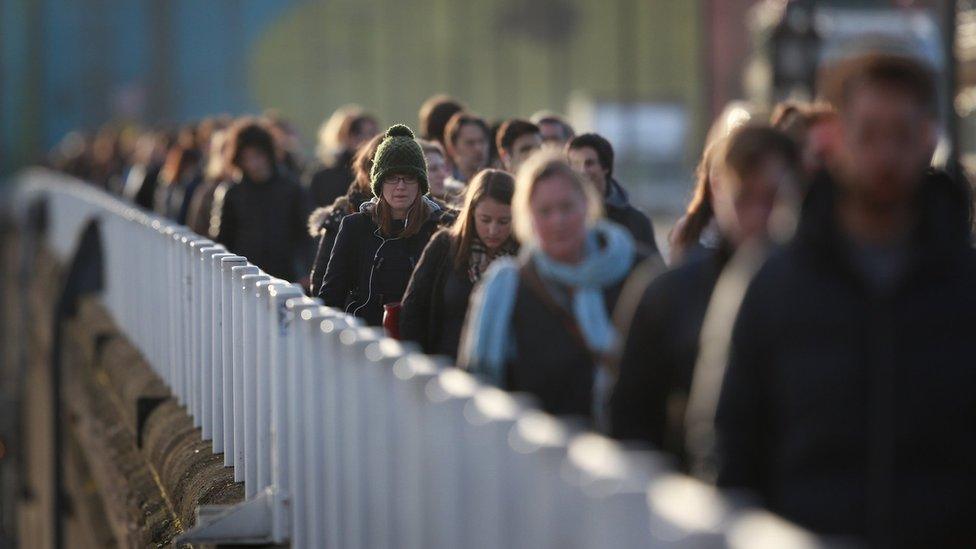Bosses more cautious on jobs after Brexit, survey finds
- Published

Employers in six out of nine sectors are less optimistic about adding jobs in the wake of the Brexit vote, a survey has found.
Financial services, construction and utilities reported the biggest falls in confidence, according to the Manpower Employment Outlook Survey.
The survey was conducted in the weeks after the referendum was held.
Although UK job prospects have held firm, Manpower said that "cracks in the ice are appearing".
The survey asked about 2,100 UK employers whether they plan to hire more workers, or cut jobs, in the last three months of this year.
Mark Cahill, ManpowerGroup UK managing director, said Britain was entering a new phase of prolonged economic uncertainty following the referendum on EU membership.
"Many finance operations in the City of London depend on the EU 'banking passport' and the fall in hiring intentions could reflect pessimism over the future of this agreement," he said.
"The future of freedom of movement across the EU is of particular concern. As UK businesses are reliant on European talent to help fill the skills gap, we urge the government to prioritise maintaining the free movement of people across the EU during its negotiations."
There had been an 800% rise in applications for finance jobs in Dublin since the Brexit vote, Manpower said.
Hiring confidence among employers in the public sector, which accounts for almost one in 10 UK jobs, has sunk to its weakest level in more than four years, according to the research.
Last month a survey by HR body the CIPD and Adecco found that the proportion of employers expecting to increase staff over the next three months fell from 40% before the Brexit vote to 36%.
There were signs that some employers, particularly in the private sector, were "preparing to batten down the hatches", said CIPD acting chief economist Ian Brinkley.
Another recent survey, the Report on Jobs from IHS Markit, found that the number of people in the UK securing a permanent job fell in July for the second consecutive month.
Retail rises
Despite the fall in sterling since the Brexit vote, Manpower found that hiring confidence among employers in the manufacturing sector dropped to its weakest level in three years.
However, the weaker pound has had a positive impact on the retail, wholesale and hospitality sector, which posted a 3% rise in hiring confidence.
That helped Manpower's seasonally adjusted Net Employment Outlook to remain steady at +5% for the final three months of the year, contrary to predictions that the Brexit vote would result in an immediate slide in recruitment plans.
A total of 8% of employers expect to increase staff numbers, 4% forecast a decrease and 87% anticipate no change.
However, Mr Cahill added: "People are still spending, meaning retail job prospects remain positive for UK workers, but this looks like a short-term feel good factor that may fall away after the busy summer period and ramp-up to Black Friday."
The Manpower survey is used as a bellwether by the Bank of England and the government.
- Published15 August 2016

- Published5 August 2016
